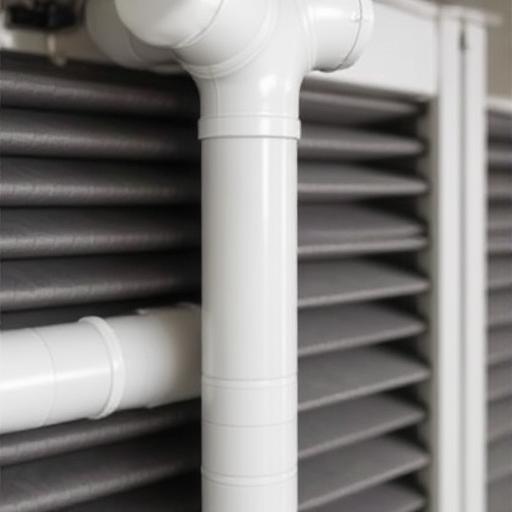The Ultimate Guide to HVAC Filtration Efficiency
Are you looking to improve the air quality in your home or business? Understanding HVAC filtration efficiency is crucial for making informed decisions. In this guide, we’ll break down the essentials of HVAC air filters, focusing on their efficiency, types, and how they can enhance your indoor environment.
Understanding HVAC Filtration Efficiency
Filtration efficiency in HVAC systems is primarily determined by the Minimum Efficiency Reporting Value (MERV) rating. This rating helps you gauge how well a filter can trap particles of various sizes. For instance, MERV 7 and MERV 8 filters can remove about 31%-33% of ultrafine particles (UFPs), while a MERV 16 filter boasts a 98% efficiency rate. If you want the best, HEPA filters are your go-to, exceeding 99% efficiency.
Why MERV Ratings Matter
The MERV rating system helps you compare the effectiveness of different filters. For example, a MERV 10 filter has a median UFP removal efficiency of around 49%, while a MERV 14 filter hits 73%. It’s essential to choose the right filter based on your specific needs, whether it’s for residential comfort or maintaining critical environments like data centers.
The Growing Demand for High-Efficiency HVAC Filters
The U.S. HVAC industrial filtration market is on an upward trend, valued at $513.1 million in 2024 and projected to reach $652.6 million by 2030. This growth reflects an increasing demand for high-efficiency filtration solutions that not only improve air quality but also contribute to energy efficiency and equipment longevity.
- Invest in high-efficiency HVAC filters to enhance indoor air quality.
- Consider the MERV rating to ensure optimal filtration performance.
- Choose filters that balance efficiency with energy consumption.
- Regularly replace filters to maintain their effectiveness.
Conclusion
Improving your HVAC system’s filtration efficiency is a smart investment in your indoor air quality. By understanding MERV ratings and choosing the right filters, you can ensure cleaner air, better energy efficiency, and longer-lasting HVAC equipment. Take action today to breathe easier tomorrow!
Ready to upgrade your HVAC filtration system? Contact us for expert advice and high-quality filter options tailored to your needs!
FAQ: HVAC Filtration Efficiency
What is the best HVAC air filter for indoor air quality?
HEPA filters are considered the best for indoor air quality, with over 99% efficiency in removing ultrafine particles.
How do MERV ratings affect filtration efficiency?
MERV ratings indicate a filter’s ability to capture particles of different sizes, directly impacting its filtration efficiency.
Can high-efficiency filters improve energy efficiency?
Yes, high-efficiency filters can improve energy efficiency by maintaining optimal airflow and reducing the load on HVAC systems.
What are the different types of air filters for HVAC systems?
Common types include fiberglass filters, pleated filters, electrostatic filters, and HEPA filters, each with varying efficiency levels.
How often should I replace my HVAC filter?
It’s recommended to replace your HVAC filter every 1-3 months, depending on usage and filter type, to maintain optimal performance.


